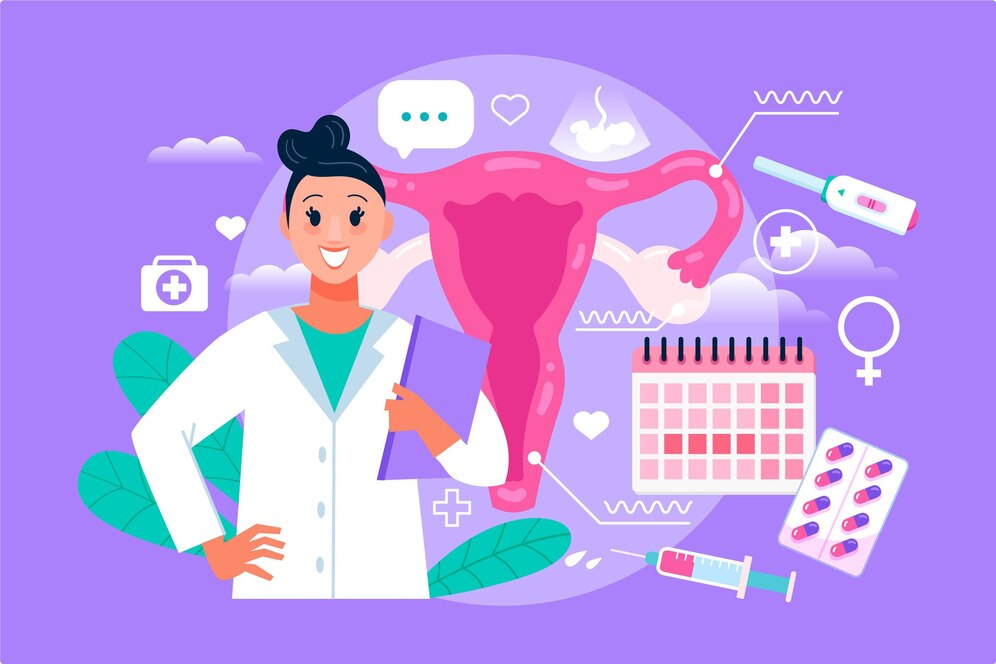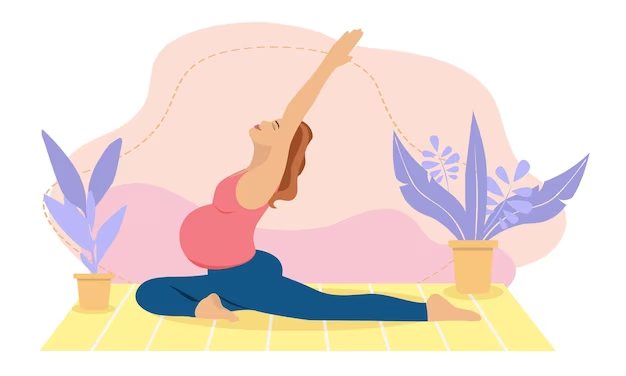How is PCOS/PCOD Diagnosed? Get 5 Day Free Trial Now At My Yoga Vibe, we understand the complexities of navigating a wellness journey, especially when...
Read MoreHow Does
PCOS Impact Your
Mental Well-Being?
How Does PCOS Impact Your Mental Well-Being?
At My Yoga Vibe, we understand the unique challenges faced by women with Polycystic Ovary Syndrome (PCOS). We believe in empowering women on their wellness journeys, and that includes acknowledging the impact PCOS can have on your mental well-being.
PCOS is a hormonal disorder affecting roughly one in ten women of childbearing age. It disrupts hormone production, leading to symptoms like irregular periods, weight gain, acne, and excess hair growth. However, the impact of PCOS extends far beyond the physical. Women with PCOS are significantly more likely to experience mental health struggles, particularly anxiety and depression.
The PCOS-Mental Health Connection
The connection between PCOS and mental health isn’t fully understood, but several factors likely play a role:
- Hormonal Fluctuations: PCOS disrupts the delicate balance of hormones, including those that regulate mood. These fluctuations can trigger feelings of anxiety, depression, and irritability.
- Body Image Concerns: Many PCOS symptoms, such as weight gain, acne, and unwanted hair growth, can take a toll on self-esteem and body image. Feeling unattractive or uncomfortable in your own skin can lead to depression and social isolation.
- Infertility Struggles: PCOS can make it difficult to conceive naturally. The stress of infertility, coupled with the emotional rollercoaster of fertility treatments, can significantly impact mental well-being.
- Social Stigma: PCOS is often a misunderstood condition. Women with PCOS may feel judged or isolated, further exacerbating emotional distress.
How PCOS Manifests in Your Mental Health
The most common mental health issues associated with PCOS include:
- Depression: Symptoms like low mood, loss of interest in activities, fatigue, and difficulty concentrating can significantly impact daily life.
- Anxiety: Constant worry, feelings of being overwhelmed, and difficulty relaxing are all common symptoms of anxiety in women with PCOS.
- Eating Disorders: Concerns about body weight and food guilt can lead to unhealthy relationships with food and develop into eating disorders.
- Low Self-Esteem: Feeling self-conscious or unattractive due to PCOS symptoms can negatively impact self-esteem and confidence.
Prioritizing Your Mental Health with PCOS
Living with PCOS is challenging, but you’re not alone. Here are some ways to prioritize your mental well-being:
- Talk to your doctor: Open communication about your mental health concerns is crucial. Your doctor can assess your needs and recommend appropriate treatment options.
- Seek professional help: Don’t hesitate to seek therapy or counseling. Therapists can equip you with tools to manage stress, improve self-esteem, and develop healthy coping mechanisms.
- Join a support group: Connecting with others who understand your struggles can be incredibly helpful. Support groups provide a safe space to share experiences and receive encouragement.
- Practice self-care: Prioritize activities that nourish your mind, body, and spirit. This might include yoga, meditation, spending time in nature, or connecting with loved ones.
- Focus on healthy habits: Eat a balanced diet, get regular sleep, and exercise – activities that promote physical health can also benefit mental well-being.
- Embrace body positivity: Challenge negative self-talk and focus on appreciating your body for all that it does. Surround yourself with positive influences and media that promote healthy body image.
My Yoga Vibe: Your PCOS Wellness Partner
At My Yoga Vibe, we believe yoga can be a powerful tool for managing PCOS and improving mental well-being. Yoga offers numerous benefits:
- Stress Reduction: Yoga incorporates breathing techniques and mindfulness practices proven to reduce stress and anxiety.
- Improved Body Image: Yoga focuses on strength and body awareness, not size. It can help you develop a more positive and accepting relationship with your body.
- Emotional Regulation: Yoga can help manage difficult emotions by teaching you how to connect with your breath and find stillness within yourself.
- Increased Self-Care: Taking time for yoga is an act of self-care, allowing you to prioritize your well-being in a nurturing and supportive environment.
Our instructors at My Yoga Vibe are sensitive to the unique needs of women with PCOS. We offer modifications to accommodate different physical abilities and create a safe and welcoming space for you to practice.
Additionally, we offer workshops and classes specifically tailored to support those with PCOS, such as:
- Gentle Yoga for PCOS: This class focuses on gentle movement, relaxation techniques, and breathwork to manage stress and promote overall well-being.
- Yoga for Body Positivity: This class encourages self-acceptance and fosters a positive relationship with your body.
- Mindfulness Meditation: This practice promotes mental clarity, emotional regulation, and helps manage anxiety and depression.
The Transformative Power of Yoga on Mahashivratri
The Transformative Power of Yoga on Mahashivratri Book a Demo A Guide to Spiritual Awakening Introduction Mahashivratri, often called The Great Night of Shiva, is...
Read MoreMental Health Benefits of Prenatal Yoga
Mental Health Benefits of Prenatal Yoga Get 5 Day Free Trial Now Introduction: Mental Health Benefits of Prenatal Yoga Pregnancy is a remarkable journey that...
Read MoreBook Free Demo Class
45 Min Live Interactive Online Class





